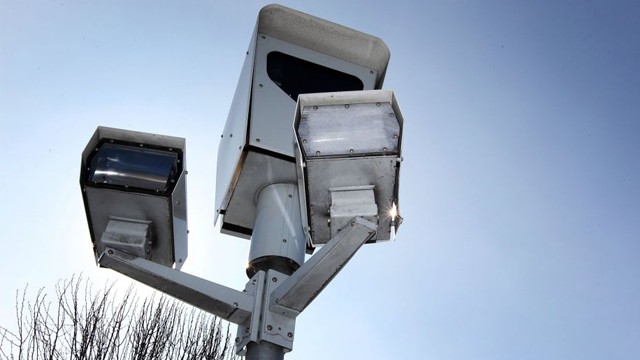Have You Got a Ticket From a Red Light Camera in Mississauga?
Published March 14, 2016 at 1:36 pm

It might bring an upside-down smile to your face to learn that red light cameras might be better at filling Peel’s coffers than preventing collisions.
According to a recent article in the Brampton Guardian, fluctuating stats make it difficult to know how much red light cameras reduce accidents. What is not in dispute, however, is how much revenue they generate for Peel (Brampton, Caledon and Mississauga).
Thousands of tickets are issued each year, which should come as a shock to no one. Last year, Mississauga residents received 7,009 tickets, each with a set fine of a whopping $325.
According to The Guardian, Peel’s red light camera program was implemented to reduce accidents, chiefly dangerous T-bone crashes caused by red light runners. The article mentions that Peel’s traffic safety staff have presented data that they believe demonstrates the benefits of the cameras, such as a purported decrease in “right angle” collisions.
Recent data cited by the Guardian shows that in 2014, there were 611 accidents in red light camera intersections, but only 29 were T-bone collisions and only nine crashes occurred in the traffic direction the cameras monitor. In 2013, there were about 757 collisions and 22 were right angle crashes. Six of those accidents occurred in the camera-monitored lanes.
Red light camera fines are administered by and paid to the city that the offense occurs in. There are currently 15 red light cameras in operation in Mississauga and Peel is considering expanding the program.
The Guardian story explains that the cameras are placed in intersections with high incidences of right angle collisions — collisions that are extremely dangerous and can be fatal. That said, traffic safety experts do concede that these serious crashes are somewhat rare. The article also goes on to explain that rear-endings are more likely to occur when people slam on their breaks to avoid getting pinched by the camera’s all-seeing, all-knowing, all-the-money-charging eye. That said, experts still insist that rear-end crashes are significantly less dangerous, suggesting the cameras are doing their job.
What do you think, Mississauga? Do the cameras make you feel safer?
INsauga's Editorial Standards and Policies
